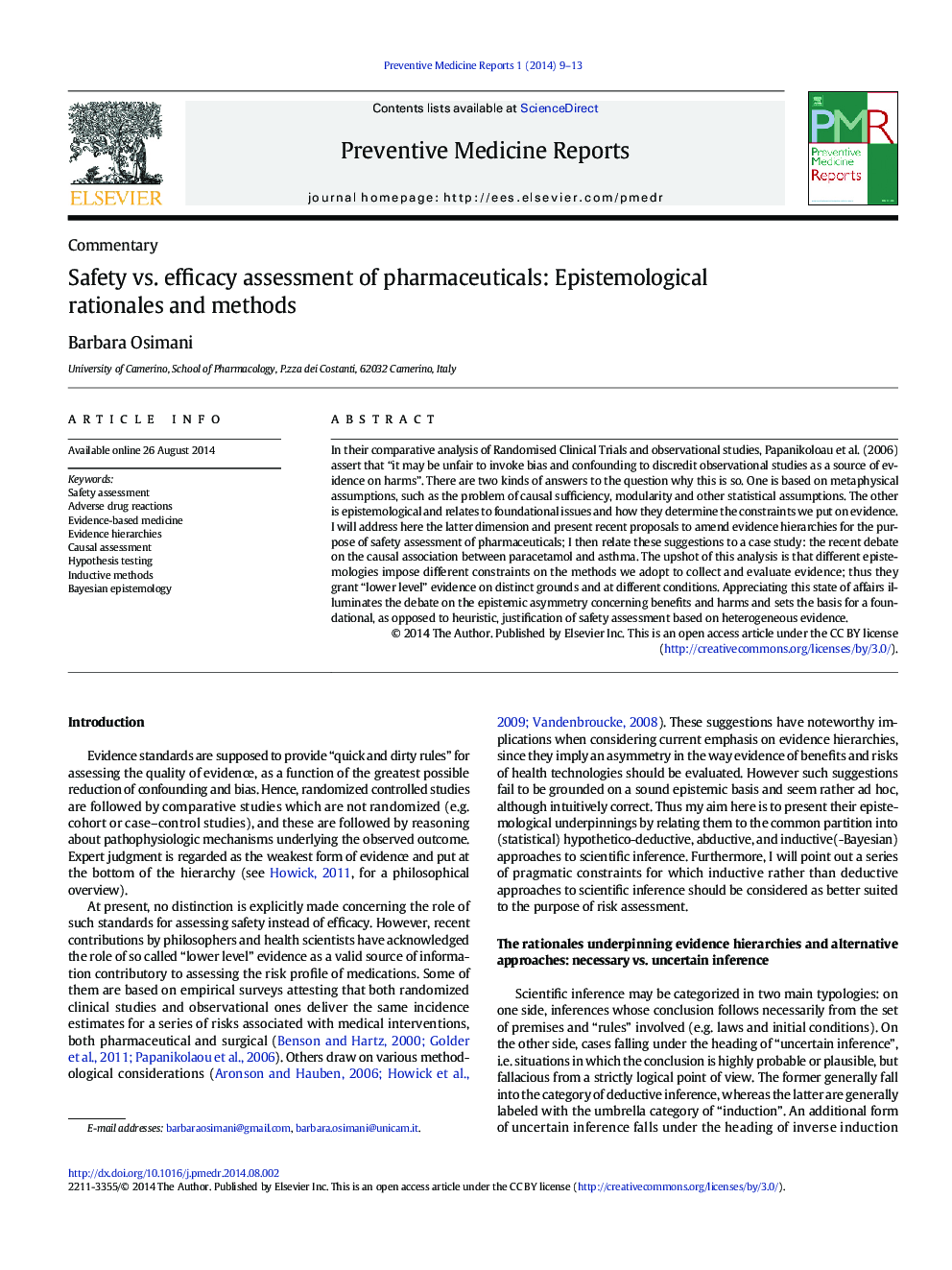| کد مقاله | کد نشریه | سال انتشار | مقاله انگلیسی | نسخه تمام متن |
|---|---|---|---|---|
| 4202486 | 1609091 | 2014 | 5 صفحه PDF | دانلود رایگان |
• Benefit vs. harm: distinction of epistemic/practical constraints for safety assessment.
• Evidence standards in relation to distinctive epistemologies.
• Hypothesis testing vs. inductive methods of hypothesis confirmation.
• Probabilistic hypothesis of causality in safety assessment.
• Epistemological rationales for the acceptance of “lower level” and heterogeneous evidence.
In their comparative analysis of Randomised Clinical Trials and observational studies, Papanikoloau et al. (2006) assert that “it may be unfair to invoke bias and confounding to discredit observational studies as a source of evidence on harms”. There are two kinds of answers to the question why this is so. One is based on metaphysical assumptions, such as the problem of causal sufficiency, modularity and other statistical assumptions. The other is epistemological and relates to foundational issues and how they determine the constraints we put on evidence. I will address here the latter dimension and present recent proposals to amend evidence hierarchies for the purpose of safety assessment of pharmaceuticals; I then relate these suggestions to a case study: the recent debate on the causal association between paracetamol and asthma. The upshot of this analysis is that different epistemologies impose different constraints on the methods we adopt to collect and evaluate evidence; thus they grant “lower level” evidence on distinct grounds and at different conditions. Appreciating this state of affairs illuminates the debate on the epistemic asymmetry concerning benefits and harms and sets the basis for a foundational, as opposed to heuristic, justification of safety assessment based on heterogeneous evidence.
Journal: Preventive Medicine Reports - Volume 1, 2014, Pages 9–13
